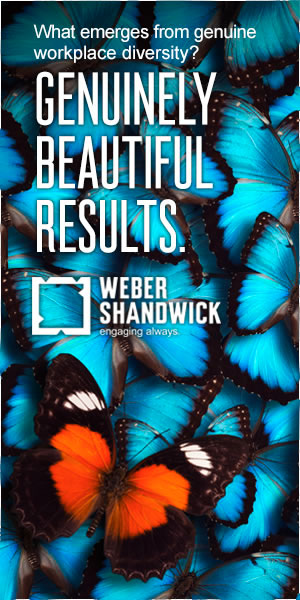They’re tech-savvy, educated and fast problem-solvers. They’re complete workhorses, go-getters with entrepreneurial spirit who won’t take no for an answer. They’re applying to jobs in droves, across the country in all major industries. Oh, and they’re fun to chill with during lunch.
So why do the vast majority of millennial women suspect their resumes are being tossed in the trash?
A whopping 77% percent of women age 18 – 35 say that being “too young” has hurt their chances of landing interviews and employment. The staggering figure comes from a comprehensive survey of American women conducted by 1,000 Dreams Fund and Recruiter.com.
Ageism — especially combined with sexism — is a touchy subject for any employer. (Did your anxiety spike just reading those words?) But it’s a necessary hurdle to overcome: We already know that racial and gender diversity improves company performance, which means that a staff full of identical-looking people likely isn’t functioning at its optimal level.
But we’re now seeing unexpected trends related to gender plus age in the workplace, and the stats imply that you may be inadvertently turning away your best applicants. If any of these 3 statements apply to your business, it’s time to shake things up a bit.
Your resume review process isn’t blind
Like it or not, that initial glance at a gendered name or even a graduation date can influence a hiring manager’s perception of a resume. In nearly all fields, the only criteria that should matter are an applicant’s skills. Forcing recruiters to look only at relevant content can be as simple as painting white-out over names or processing paperwork through a specially-designed software.
Consider this: In order to recruit only the best of the best musicians, symphonies and orchestras often hold auditions from behind a dark screen. Why? Because judges have proven to be improperly swayed by irrelevant factors, most often gender. Introducing the blind process increased female musicians’ chances of advancement by 50%, and the music was all the much sweeter for it. Eliminating biases and focusing solely on skill will produce the best possible team.
During the interview stage, you penalize insecurity
With more time in the workforce comes more confidence, but self-assurance isn’t a guarantee of superiority. Picture a 45-year-old applicant who’s interviewing for a new opening. He’s previously held associate-level positions at three different companies, which means he’s successfully interviewed for jobs at least three times in his life. This guy is probably going to nail his interview: He’s charming, quick, and knows exactly what you want to hear.
Now picture a 23-year-old graduate in pursuit of her first full-time job. According to 1000 Dreams Fund’s survey, 75% of young women are “not very confident” in their interviewing skills. In other words, this applicant probably won’t be a smooth-talker — her nervousness will likely show during the interview. She may not hit every key talking point. She may stumble over those sticky questions, like, “What’s your biggest weakness?” (And really, that question is so annoying. It’s got to go.)
Here’s the thing: Behind her jitters, the second applicant might just have a stellar portfolio of graphic designs. She may have the perfect friendly but persuasive demeanor for sales, or maybe she’s a human calculator who can whip your finance department into shape.
The interview does matter in the hiring process, but it’s important to look past small flubs and basic anxiety. Job-searching is intimidating, and there’s a lot on the line for recent grads. Don’t hold their nerves against them.
You encourage competition over competence
No doubt, you want your employees to perform at their best levels — and a spirit of competition fuels their motivation to thrive. But in most workplaces, employees should be competing not against each other, but against themselves: They should feel challenged to be better than they were yesterday.
In an ultra-competitive office, younger employees may feel intimidated by more experienced co-workers. They may avoid interaction and hesitate to reach out for project support or guidance. (For that matter, the opposite is true, too: If you overemphasize the abilities of your newest recruits, older employees may feel discouraged.) This is especially problematic for millennial women as they are are already less likely than men to aspire to top management positions.
Instead, encourage a collaborative environment. Younger staffers should feel comfortable working with established employees — and vice versa! There’s so much that different generations can learn from each other. Reward excellent work without comparing employees’ efforts against one another. Your team will be more driven toward unified success.
Christie Garton is an award-winning social entrepreneur, author and creator of the 1,000 Dreams Fund, a social enterprise which empowers young women in the U.S. through scholarships and life-changing advice.



